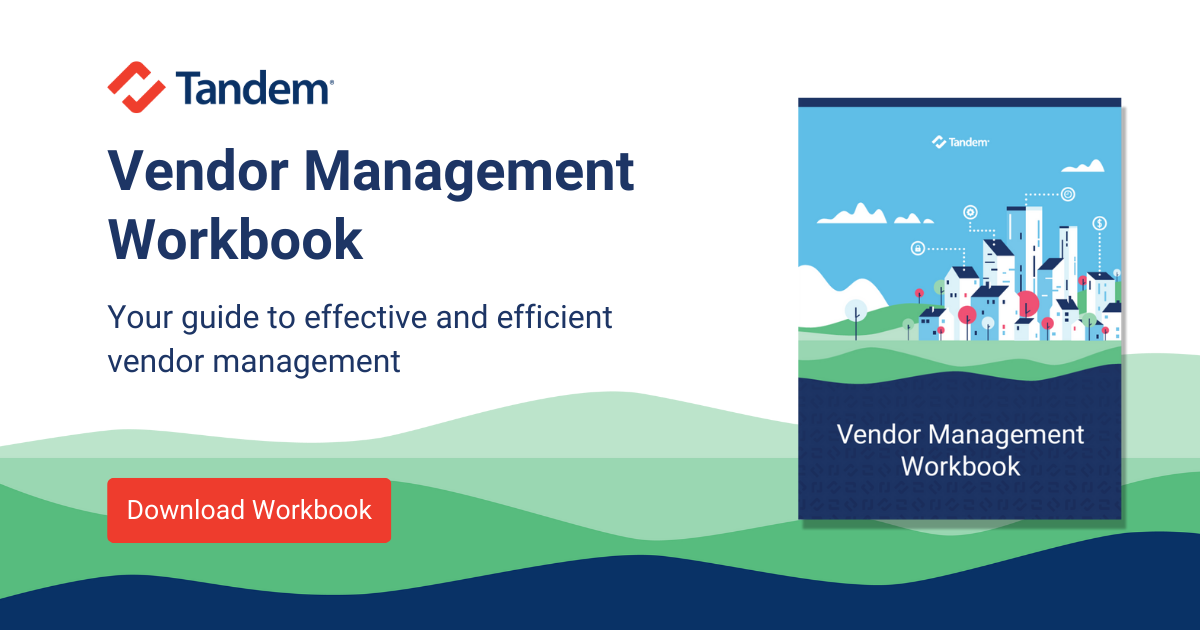The overall success of an organization can be linked closely to the security, stability, and quality of their third parties. Therefore, vendor management is a critical part of an organization's business strategy and many companies are turning to third-party risk management software to help evaluate, monitor, and manage their vendors.
In contrast to using documents and spreadsheets, software applications have the unique ability to log, track, analyze, and send reminders for key events. In addition, many platforms come with templates to help vendor managers review contracts and due diligence documents.
With all these features and options available, it can be difficult to know: What do you need to look for in vendor management software and how can you determine if the solution is right for your organization? In this article, we will look at the top features to consider when evaluating a vendor management software solution, including features related to contract management, risk management, due diligence, and responsibility.
Contract Management
The foundation of a vendor relationship is the contracts and agreements both parties sign. Contracts can be complex and include numerous key events and dates.
It is critical to track key dates to ensure you do not miss certain events. For example, for an auto-renewing contract, you will want to receive reminders prior to the vendor's termination notice requirements, in the event you want to change or cancel the agreement.
In addition, you will want to be able to conduct and document formal reviews of the contracts. This is particularly important for certain industries, such as banks and credit unions, when federal and state regulators require specific items to be addressed in the agreements.
As you consider contract management, ensure potential vendor management software solutions can:
- Track and report on the contract expiration date
- Send reminders prior to contract auto-renewal
- Send reminders for termination notice
- Provide contract review templates
- Record who reviewed the contract
Risk Management
Not all third party relationships are the same, so it is important to be able to differentiate, risk rate, and track the significance of the relationships. The software should have the ability to help you conduct risk assessments and determine the significance of your vendors.
Rating a third party can help you determine how best to manage the vendor by helping document what risk the organization is taking on by being in a relationship with the vendor, as well as how important the vendor is (or will be) to the organization. Rating a vendor can also help communicate the status of a vendor relationship when it comes time to report on the organization's vendor management program. Software solutions can standardize this process, improving the organization's documentation and consistency in third party oversight.
With risk management in mind, ensure potential vendor management software solutions can help you:
- Conduct a third-party risk assessment
- Rate the significance of your third parties
- Filter and report on vendors, based on risk and significance
Due Diligence
Due diligence is an important part of vendor selection and ongoing oversight, as it is designed to provide assurance a third party can or will meet your organization's needs. Conducting a due diligence review is not a one-time activity, but an ongoing process for current vendors. The items you want to collect, track, and review as part of your due diligence process (e.g., financial statements, SOC reports, proof of insurance, BCP testing, etc.) will vary based on the vendor service relationship.
To learn more about how to streamline your third party due diligence process, see 4 Steps to Simplify Your Vendor Due Diligence Process.
When considering due diligence, ensure potential vendor management software solutions provide:
- Review templates for common due diligence items
- Notification when new due diligence items are needed
- Gap reports showing missing due diligence
- Record of your historical due diligence and reviews for a vendor
- Tools to request due diligence questionnaires or documents from your vendors
- Track vendor references
- Document and store general notes on vendors
Responsibility
Vendor management should not be an isolated activity assigned to just one individual. It is important to involve stakeholders who are directly involved with the service provider or in using the contracted services. In addition, staff with key expertise could be involved in the evaluation of vendors. For example, you may want a CPA reviewing financial statements or someone with technical knowledge reviewing SOC reports.
See our post about how you can Review your Vendor's SOC Report (SSAE 18) in 15 Minutes for tips and a template for reviewing SOC reports.
In order to manage and control access, it is important for a software solution to support the ability to assign responsibility to vendor service relationships, as well as track who completed contract reviews, risk evaluations, significance questions, and due diligence reviews. In addition, for security purposes, the software should be able to limit access based on responsibility and track end-user activity.
As you consider responsibility, ensure potential vendor management software provides the ability to:
- Delegate responsibility for a vendor service relationship
- Restrict access based on responsibility
- Grant appropriate user access levels for employees
- Record user activity within the software
- Track who evaluated or reviewed contracts, due diligence items, and general reviews
- Assign tasks to end-users and view progress on tasks
Download our Third-Party Vendor Management Software Review Excel Tool for a more exhaustive list of features you may want to consider when evaluating potential vendor management solutions.



